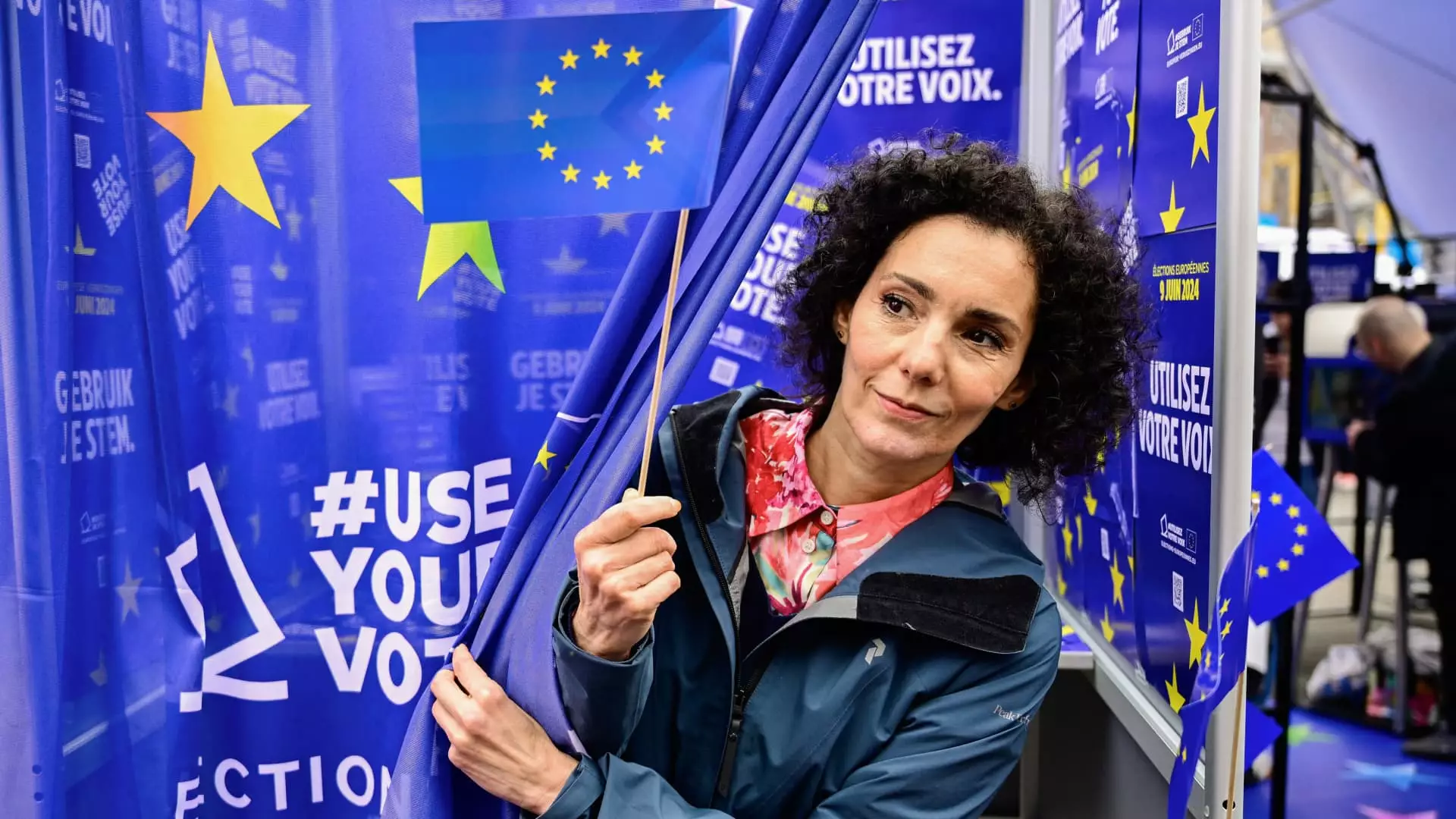The political landscape of the European Union is on the brink of significant change as voters from the 27 member states prepare to cast their ballots. Amid a surge in support for far-right parties, analysts anticipate a shift towards more protectionist policies within the bloc. This transformation is expected to include a reduction in climate-related targets and an increase in defense spending. It is crucial to understand the potential ramifications of this election, not only for Europe but for the global community as a whole.
European Union lawmakers and officials celebrated U.S. President Joe Biden’s electoral victory in 2020 with optimism for a renewed transatlantic partnership. The previous administration, led by Donald Trump, had strained relations with European officials through trade disputes, disagreements on climate initiatives, and confrontational rhetoric. The future of this crucial relationship remains uncertain as Americans head to the polls, determining whether Biden will continue his presidency or if Trump will make a comeback. Nevertheless, the EU has grasped a vital lesson – reliance on the U.S. for defense may not be guaranteed in the coming years. Trump’s reluctance to defend NATO countries and delays in aiding Ukraine have highlighted the need for increased defense collaboration within the EU.
The European Commission is poised to announce fresh tariffs on Chinese electric vehicles following the election, demonstrating the EU’s delicate balancing act between cooperation and rivalry with Beijing. While the EU has positioned itself as a climate leader on the global stage, the rise of climate-skeptic politicians within the bloc is expected to temper its ambitious environmental agenda. Analysts warn that a rightward shift in the EU Parliament could hamper the progression of environmental legislation and potentially weaken existing agreements, such as the phase-out of conventional vehicles by 2035. Embracing measures like nuclear power or fracking for gas may gain momentum under this new political landscape.
Against the backdrop of Russia’s annexation of Ukraine, the latter has applied for EU membership, initiating official negotiations that could commence soon. While Ukraine’s accession process is bound to be lengthy and complex, questions arise regarding the adjustments the EU must make to accommodate new members like Ukraine. The bloc may need to transition towards qualified majority decision-making to navigate the increasingly diverse interests of its expanding membership. Moreover, the potential influx of Ukraine could trigger a redistribution of net contributions within the EU budget, unsettling current net-receiving countries. Concerns persist that a surge in Eurosceptic sentiments could hinder significant reforms and impede the enlargement process.
A recent survey conducted across Europe revealed that citizens prioritize economic stability, social equity, and job creation as paramount for the continent’s future. This emphasis on economic well-being comes at a critical juncture as the EU grapples with post-inflation recovery following a turbulent period in 2023. Goldman Sachs has identified three structural challenges facing the EU, including demographic deterioration, lagging industrial investment compared to the U.S., and sluggish productivity growth. Addressing these economic hurdles is essential for the EU’s sustained prosperity and resilience in the face of evolving political dynamics.
The impending political transformations in the EU have profound implications for its policy direction, relationships with global partners, and internal cohesion. As the region navigates through a period of transition, it must confront challenges with strategic foresight and proactive measures to safeguard its interests and promote stability within and beyond its borders.


Leave a Reply